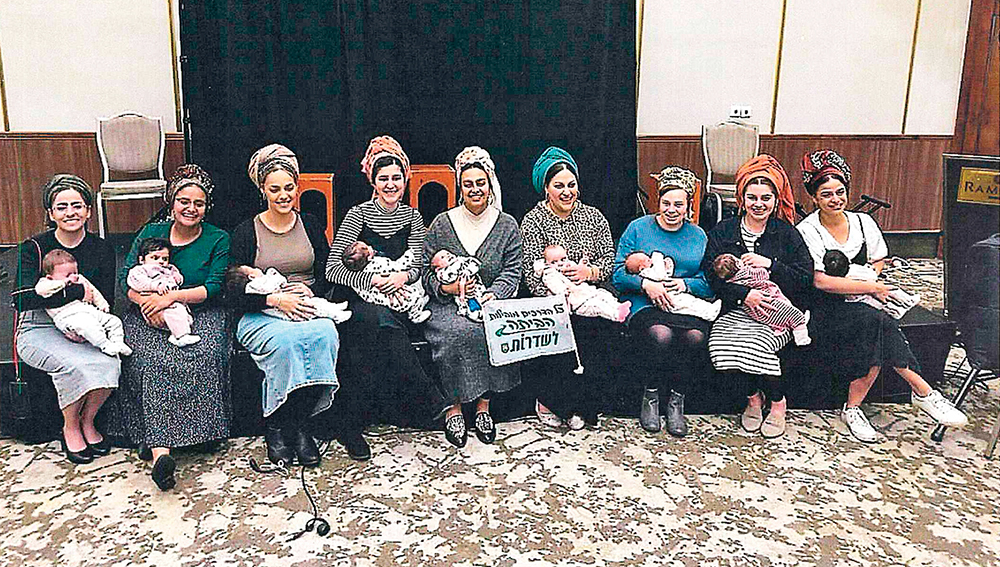Rav Schachter: Equity and Compassion
In a ruling of great importance, Rav Herschel Schachter (Piskei Corona number 27) urges those whose Pesach programs were canceled to resolve payment issues in beit din in a spirit of peshara/equity and compassion. Rav Schachter’s brief ruling emerges from principles articulated in classic sources from the Mishnah and Gemara to the classic commentaries to the Shulchan Aruch to the tradition of batei din for at least the past 200 years. Let us set forth the basis for his ruling.
Six Basic Principles
Principle #1: A Employee’s Responsibility
The Mishnah (Bava Metzia 9:6) discusses a chocheir, a sharecropper who pays a fixed amount of crops as his rent payments, who experiences a ruinous event to the crops he raises. The Mishnah teaches that despite the calamity, he is required to uphold his payment responsibilities1. The Shulchan Aruch (Choshen Mishpat 334:1) in turn rules that an employee is not entitled to payment if a catastrophic event prevented him from completing the work for which he is hired to perform2. Thus, an employee is not excused even if circumstances make it impossible for him to perform the work for which he was hired.
Principle #2: A Makat Medina
The Mishnah, however, excuses the chocheir from payment if the crops were ruined due to a makat medina, a community-wide disaster.
The question, though, is how far to apply this principle. The Mishnah excuses the chocheir from his rental payments. Does the halacha even require an employer to pay his workers who are unable to complete their assigned tasks due to a makat medina? Is the chocheir’s exemption unique or does it apply to all workers? This will be addressed later in our discussion.
Principle # 3: Tenai vs. Din Torah
The Mishnah (Bava Metzia 7:10-11, as explained by the Gemara) records a dispute between Rabi Meir and Rabi Yehuda as to whether the halacha recognizes a contractual stipulation (tenai) that runs counter to the Torah’s monetary laws. The Shulchan Aruch (Choshen Mishpat 291:17) rules in accordance with Rabi Yehuda that such conditions, generally speaking, are valid in the eyes of Jewish law.
This is relevant to our situation in regard to a contract that calls for a cancellation fee. Do customers who canceled due to the corona pandemic have to pay the agreed-upon cancellation as set forth in the contract?
Principle #4: Asmachta
However, not every monetary stipulation is validated by the halacha. A most important example is the case of an asmachta, a penalty clause. The Mishnah (Bava Batra 10:5) presents a classic asmachta scenario: A borrower who owes $100 is able to pay $50 when the loan comes due. He pays the $50 and promises to pay an additional $100 if he is unable to pay the remaining $50 owed by the end of 30 days after the debt is due. The halacha follows Rabi Yehuda who rules that the borrower is not required to pay the $50 penalty in case he does not pay the money by the end of the 30 days (Shulchan Aruch Choshen Mishpat 207:12). The cancellation fee in our situation seems like an asmachta and payment would not be required.
Principle #5: Im ovir V’Lo A’avid Asheleim B’Meitva
The Mishnah (Bava Metzia 9:3), though, legitimates an agreement made by an aris (a sharecropper who pays a fixed percentage of the crops he raises) who agrees to generously compensate the owner of a field if he fails to work the field according to their agreement (Bava Metzia 104a). The standard agreement with an aris, explains the Mishnah, includes such a clause: “Im ovir v’lo a’avid asheleim b’meitva,” if I fail to work the field then I will generously compensate for the lost crops. The payment is not a penalty; rather, it constitutes appropriate compensation to the owner of the field for the lost profits. In addition, the sharecropper himself chooses whether he will work the field (Shulchan Aruch 207:13). Do cancellation fee payments fit into this category?
Principle #6: Peshara, Lifnim Mishurat HaDin and Compassion
The Torah stresses the importance of resolving monetary disputes based on equity (peshara) and acting beyond the letter of the law (Devarim 6:18 with Rashi and Ramban). The Gemara (Bava Metzia 30b) goes as far as to say that the Beit HaMikdash/Jerusalem was destroyed due to failure to act lifnim mishurat hadin (beyond the letter of the law). The following classic Talmudic story (Bava Metzia 83a) poignantly illustrates this point:
Some porters [negligently (see Rashi and Maharsha)] broke a barrel of wine belonging to Rabbah bar bar Channah. He seized their garments [as a form of payment], so they went and complained to Rav. Rav told [Rabbah bar bar Channah], “Return their garments.” [Rabbah] asked, “Is that the law?” Rav replied, “Yes, [as it says in Mishlei 2:20], ‘You shall walk in the way of good people.’” So [Rabbah] returned their garments. They further claimed [to Rav], “We are poor men, have worked all day, and are hungry. Are we to get nothing?” Rav ordered [Rabbah], “Go and pay them.” He asked, “Is that the law?” [Rav] responded, “Yes, [as the same verse continues], ‘And keep the path of the righteous.’”
Rav’s ruling, as we shall see, is very relevant for our current situation, as we shall discuss.
A Landmark Ruling of the Maharam MiRutenberg and Rama
Now that we have set the background for our discussion, we are ready to introduce a landmark ruling of the major 13-century authority, the Maharam MiRutenberg (cited in the Mordechai Bava Metzia 343). He rules that in a case where the local ruler forbade the teaching of Torah, the employer must nonetheless pay the teacher until the end of the term of the contract. In this case of a makat hamedina, the Maharam expands the Mishnah from excusing rental payment to requiring the employer to make a payment.
While the Rama (Choshen Mishpat 321:1 and 334:1) cites this ruling as authoritative, there remains the question as to whether the Maharam requires full payment or only half payment and whether this is a ruling unique to a Torah teacher or to any employee. Interpreting the ruling of the Maharam MiRutenberg emerges as a matter of great dispute among the major commentaries to the Choshen Mishpat section of the Shulchan Aruch, as we shall now outline.
The Shach, the Sma and the Netivot
The Shach (Choshen Mishpat 334:6) understands the Maharam and the Rama to apply to all workers and that they require the employer to make full payment as set forth in their contract. The Sma (334:6) vociferously disagrees, arguing that the Maharam and Rama require only half payment of wages (after all, neither party is at fault and therefore the loss should be shared equally by the parties). Since neither party is at fault in a case of a makat medina, then the employer and employee share equally in the loss.
The Netivot3 (334:1), in turn, limits the Maharam and Rama’s ruling to a Torah teacher. The Torah teacher is forbidden by halacha to receive a salary for teaching Torah. The compensation he receives is fundamentally for watching the children. Thus, even when the ruler forbids teaching Torah, the employer must pay since the teacher is able to provide the service for which he was fundamentally hired, which is child care. However, if the ruler also forbade providing child care then the employer would be excused from payment.
Chatam Sofer, Rav Asher Weiss, Rav Tzvi ben Yaakov and Rav Schachter
Rav Asher Weiss (Teshuvot Minchat Asher 2:120) concludes that since the halacha has not arrived at a definitive conclusion, it is proper to make a peshara between parties. Rav Weiss writes in the wake of the Hamas war of 2010. Rav Tzvi ben Yaakov (in an essay printed in Techumin volume 12), a leading dayan in the Tel Aviv Beit Din, also counsels making a compromise in the event of a makat medina. Dayan Ben Yaakov writes in the context of the Persian Gulf War of 1991.
The Chatam Sofer sets the precedent for this in his resolution of disputes in the wake of the Napoleonic invasion of his hometown Pressburg during the Franco-Austrian war at the turn of the 19th century. The Chatam Sofer (in his memoirs of the Jewish community’s 40-day exile from Pressburg, page 51) notes that he is unable to arrive at a definitive halachic ruling on this matter and thus counsels the parties to arrive at a peshara4.
Accordingly, Rav Schachter in calling for a peshara for the canceled Pesach 2020 excursions is following in a long-standing tradition to compromise in such situations.
Contract Stipulations
What would be, though, if the contract specifically stipulates that deposits are non-refundable? What if there is the obligation to pay a cancellation fee as liquidated damages? Rav Yonah Reiss, the Av Beit Din of the Chicago rabbinical Council, correctly notes that “this will generally be enforceable.” He cites Rav J. David Bleich (Contemporary Halachic Problems, volume IV) who writes that such agreements are valid as long as the damages “are reasonably calibrated to actual loss sustained by the party.” Rav Reiss continues, “However, when the contract has not been performed at all and there is a complete lockdown preventing others from utilizing the contract, this is a more difficult argument, because that might be a genuine asmachta especially in the case of the cancellation fee as opposed to the case of the down payment that might be used to offset expenses or overhead.”
We saw earlier that halacha recognizes stipulations that run counter to the Torah’s monetary laws. Moreover, we noted that the halacha validates the standard agreement made between landowners and tenant farmers that “im ovir v’lo avid ashaleim b’meitva.” Thus, as long as the damages are “reasonably calibrated to the actual loss sustained” by the Pesach excursion vendor then the agreement matches the legitimated model of “im ovir v’lo avid ashaleim b’meitva.”
Under normal circumstances, a cancellation fee also matches the im ovir v’lo a’vid ashaleim b’meitva model. The vendor loses an opportunity to sell a spot to another customer and thus the cancellation fee is fair and reasonable. However, a customer cancelling due to the COVID-19 pandemic does not fit this model. Thus, Rav Reiss correctly notes that such an agreement seems to constitute an unjustified penalty/asmachta and thus invalid by halachic standards.
Conclusion
As Rav Schachter notes in his aforementioned psak/ruling, there is much for a beit din to consider to arrive at a fair resolution of a dispute between customers and vendors about canceled Pesach 2020 vacations. Insurance payments, government payments, costs incurred are among the many points that must be considered. Moreover, many of the Pesach vacation entrepreneurs are facing staggering and even devastating financial loss, very much bringing to mind the story of Rabbah bar bar Chanah and the impoverished wine porters who faced ruin due to their mishap. Rav Schachter is right on target and very much keeping within our tradition in calling for compassion to be exercised in this terrible situation.
During an extraordinarily difficult time, Rav Schachter has been a clear voice showing us the Torah way how to handle an entirely unprecedented calamity in all its many facets, including proper resolution of the questions regarding refunds for missed Pesach vacations. We have shown how his ruling regarding Pesach program compensation flows from at least 2,000 years of Torah tradition. May we have the fortitude and commitment necessary to live up to these ideals in a manner in which our children and grandchildren will be proud.
Rabbi Haim Jachter is the spiritual leader of Congregation Shaarei Orah, the Sephardic Congregation of Teaneck. He also serves as a rebbe at Torah Academy of Bergen County and a dayan on the Beth Din of Elizabeth.
1 This principle is also articulated by the Mishnah, Bava Metzia 9:2.
2 An exception would be if the employer foresaw the impending catastrophe and the employee did not.
3 Rav Asher Weiss (Teshuvot Minchat Asher 2:220) believes that the Vilna Gaon (Bi’ur HaGra Choshen Mishpat 321:7) concurs with the Netivot.
4 The Chatam Sofer, though, notes that he paid his employees even for service not rendered during the 42-day exile. Rav Aharon Lichtenstein similarly ordered Yeshivat Har Etzion to pay its Arab workers even when they missed work when they were forbidden to enter Alon Shevut during the Intifada. The Rabbinical Council of Bergen County, in turn, in April 2020 urged community members to pay their home help even for time missed due to the COVID-19 pandemic.











